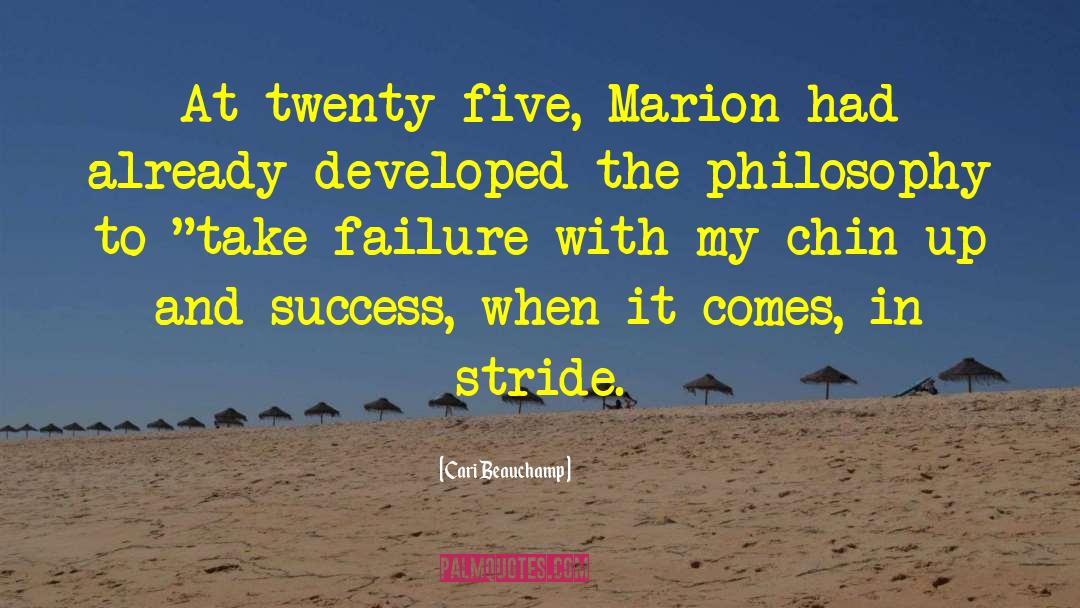Cari Beauchamp Famous Quotes
Reading Cari Beauchamp quotes, download and share images of famous quotes by Cari Beauchamp. Righ click to see or save pictures of Cari Beauchamp quotes that you can use as your wallpaper for free.
When live entertainment was not available, women delivered the film and ran the projectors for the hundreds of movies that were shown to the soldiers. Frances witnessed the popularity of movies time after time; they were shown in warehouses, airplane hangars, on battered portable screens, or projected against the wall of a building in the village square where townsfolk crammed in around the soldiers. "Charlie and Doug" were the two favorites, but anything showing familiar sights from home - the Statue of Liberty, a Chicago department store, or San Francisco's Golden Gate - created a sensation and bolstered morale. Toward the end of the war German propaganda films left behind by the retreating army became a prime attraction.30 Frances traveled to and from Paris for a few days at a time, usually arriving on or near the front after a battle to witness doctors and nurses doing what they could for the injured in the shattered villages and burying the dead. She was struck by how thoroughly exhausted the Europeans were after four devastating years of war.
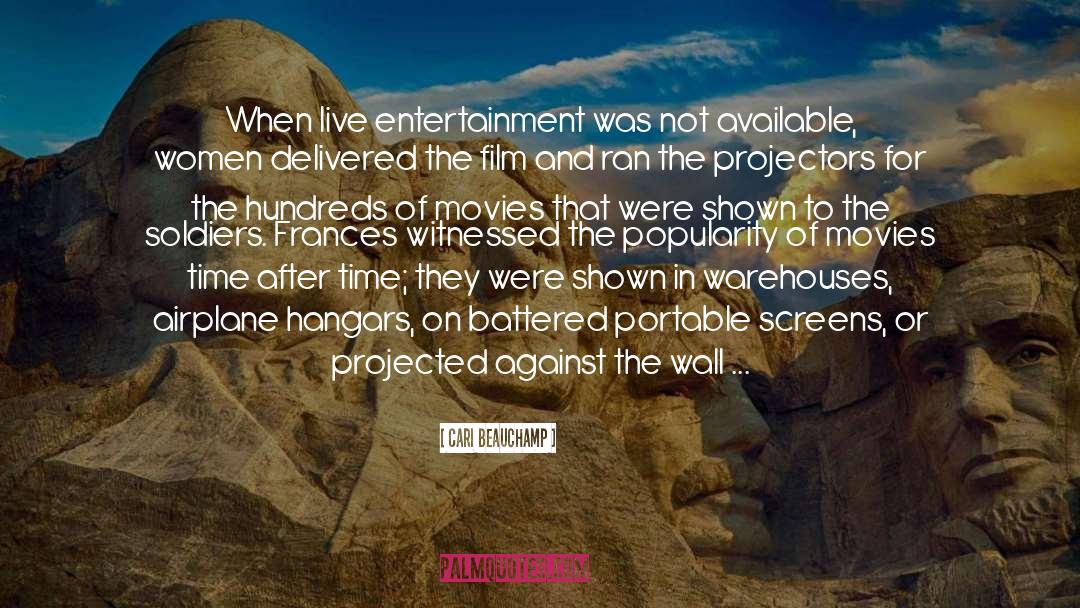
And there was Adela Rogers St. Johns, her friend since their girlhood in San Francisco. Adela would also be nominated for Best Original Story in 1932, but lose to Frances when she won her second Oscar for The Champ. Yet Adela harbored no jealousy of the woman she claimed was "touched with genius. As a writer, she is the unquestioned head of her profession. . . . As a woman, she is a philanthropist, a patroness of young artists, and herself the most brilliant, versatile and accomplished person in Hollywood.
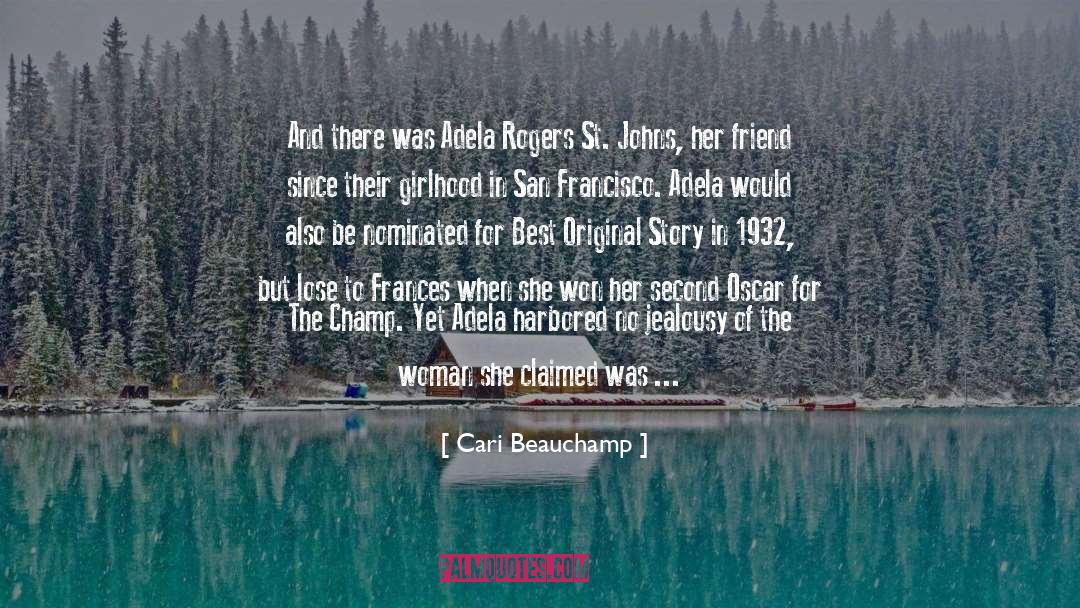
Eventually Frances was credited with writing 325 scripts covering every conceivable genre. She also directed and produced half a dozen films, was the first Allied woman to cross the Rhine in World War I, and served as the vice president and only woman on the first board of directors of the Screen Writers Guild. She painted, sculpted, spoke several languages fluently, and played "concert caliber" piano. Yet she claimed writing was "the refuge of the shy" and she shunned publicity; she was uncomfortable as a heroine, but she refused to be a victim.
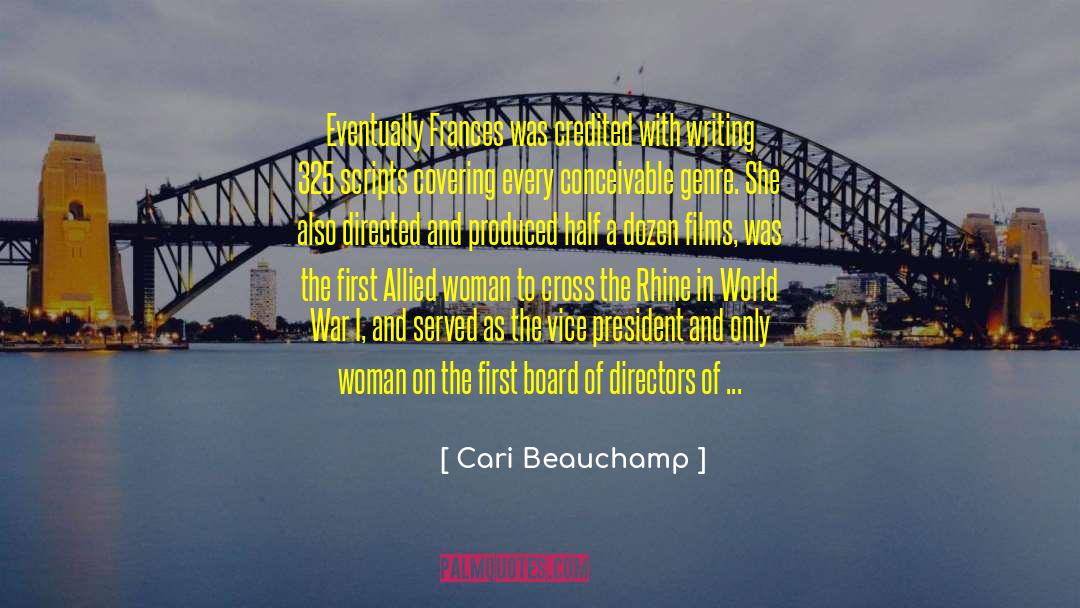
She would have four husbands and dozens of lovers and tell her best friends she spent her life "searching for a man to look up to without lying down." She claimed the two sons she raised on her own were "my proudest accomplishment" - they came first and then "it's a photofinish between your work and your friends.
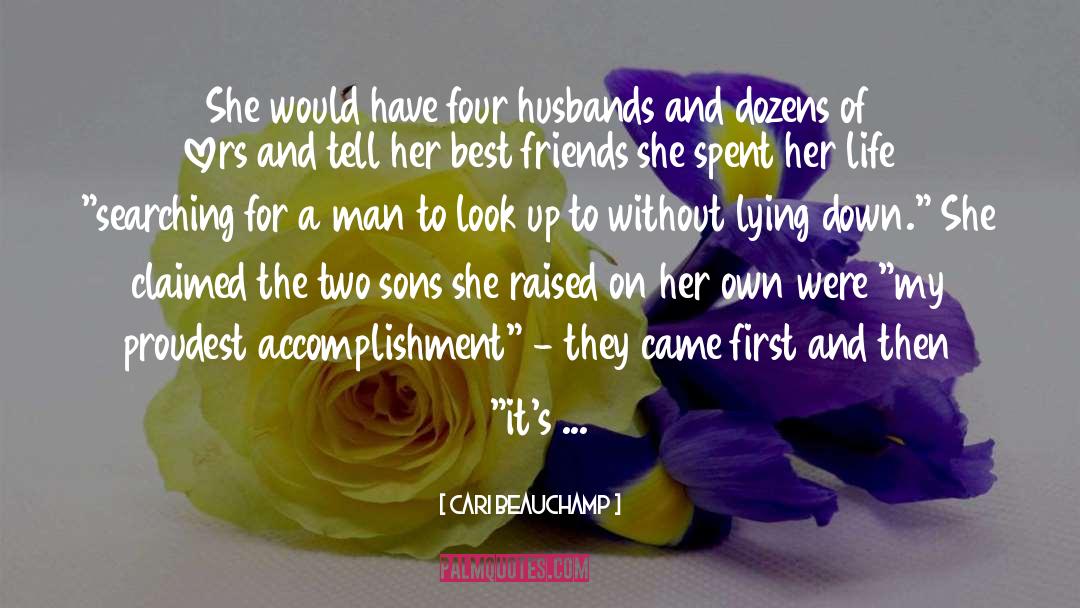
Half of the films being made in Hollywood were adaptations of books or plays and Frances was the unquestioned champion of successfully taking books to the screen. She had adapted Dumas and Balzac and walked the tightrope of bringing the potentially censorious Cytherea to the screen. There was simply no one else of her caliber and experience
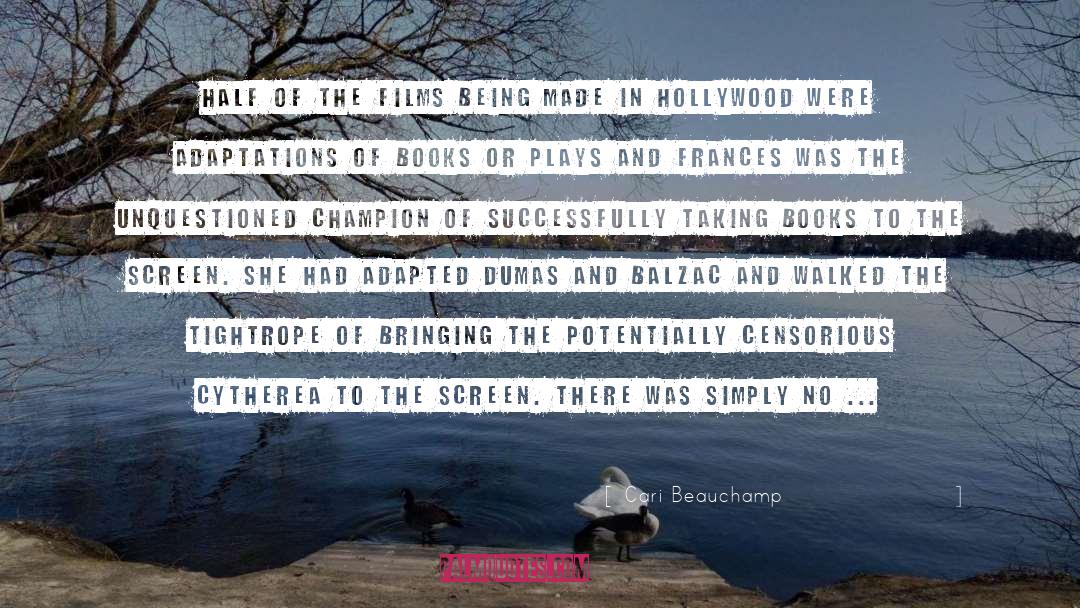
Los Angeles in 1912 was a sprawling flatland stretching between the ocean and the mountains. Within a thirty-five-mile radius, there were forty incorporated towns, and it was close to impossible to know where one ended and another began. While the southern California land boom of the 1880s had not brought the number of people who swarmed northern California in the Gold Rush, it had induced a variety of characters to seek out the sun and a new life. Families determined to create their own little utopias bought several hundred or thousands of acres at a time, primarily from the Spanish land grants that still dominated the area, infusing the new communities with their Midwestern values.

There was Mary Pickford, who called Frances "the pillar of my career," for she had written Rebecca of Sunnybrook Farm, Pollyanna, A Little Princess, and a dozen more of Pickford's greatest successes. Frances was also her best friend and had seen her through her divorce from Owen Moore and marriage to Douglas Fairbanks; Frances and Mary had even honeymooned with their new husbands together in Europe. Irving Thalberg was the "boy genius of Hollywood," but Frances called him "my rock of Gibraltar" and he was the only man in the room whose opinion she truly valued and respected. He in turn "adored her and trusted her completely.
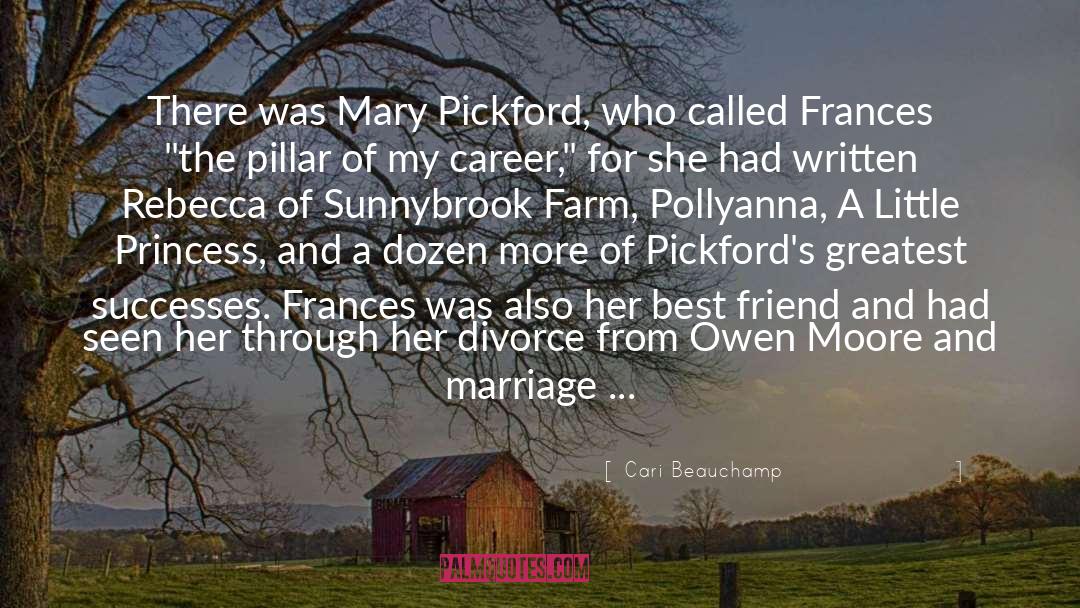
While Photoplay mused that "Strangely enough, women outrank men as continuity writers," it wasn't strange to them. Women had always found sanctuary in writing; it was accomplished in private and provided a creative vent when little was expected or accepted of a woman other than to be a good wife and mother. For Frances and her friends, a virtue was derived from oppression; with so little expected of them, they were free to accomplish much. They were drawn to a business that, for a time, not only allowed, but welcomed women. And Cleo Madison, Gene Gauntier, Lois Weber, Ruth Ann Baldwin, Dorothy Arzner, Margaret Booth, Blanche Sewall, Anne Bauchens, and hundreds of other women flocked to Hollywood, where they could flourish, not just as actresses or writers, but also as directors, producers, and editors. With few taking moviemaking seriously as a business, the doors were wide open to women.
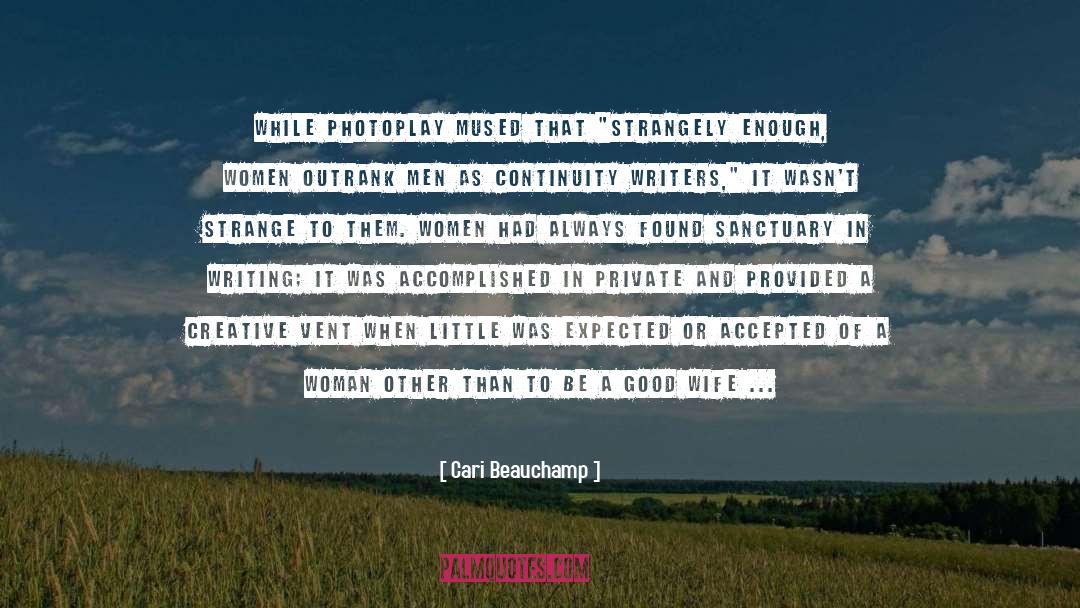
As Frances had learned to do in times of uncertainty, she created a project over which she had total control and began writing a book "Dedicated to the memory of Irving Thalberg as a tribute to his vision and genius." How to Write and Sell Film Stories was written for "serious students of film technique." She filled the straightforward textbook with anecdotes from her films and others' to convey the lessons on the development of plot, motivation, and characters she had learned with Thalberg. She had come to believe that because of increased censorship and the limited number of adaptable plays and novels, "eighty percent of the motion pictures produced will be soon be stories written exclusively for the screen" and the time was right for a book on original screenplays. The audience for the book was immediate; universities ordered copies before it was published and it quickly went into several printings. The book led to her taking on an advice column on screen writing for Cinema Progress, a serious educational film magazine published by the American Institute of Cinematography based at the University of Southern California. She opened her house to roundtable discussions with students and sponsored a scenario contest with the winners serving as studio "apprentices.
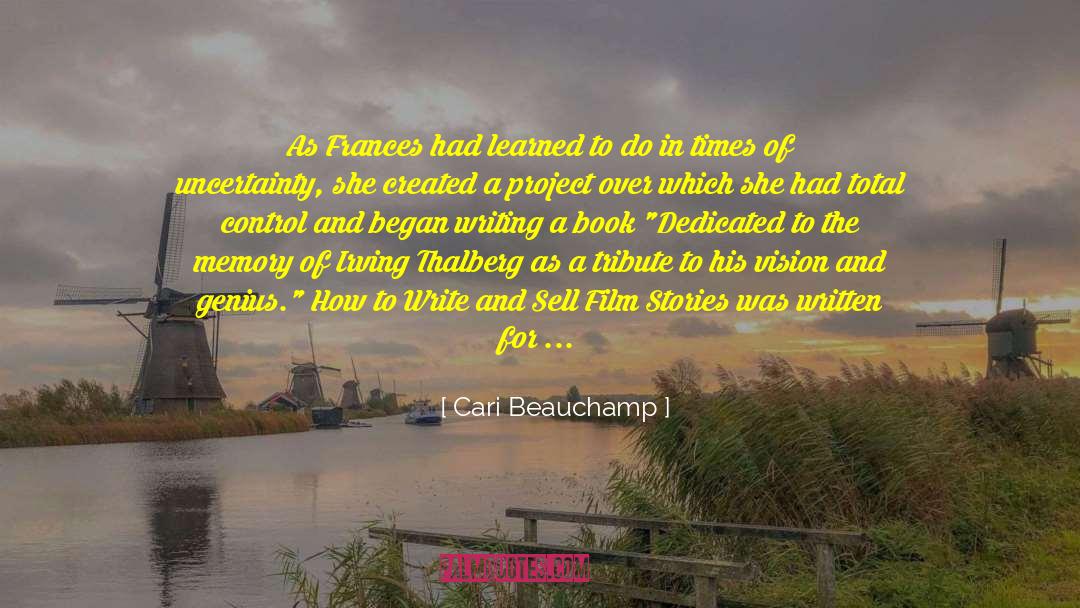
Over a quarter of the scenario writers were women and many of them were already friends, including June Mathis, Agnes Christine Johnston, Dorothy Farnum, Gladys Unger, and Winifred Eaton Reeve. Most had entered the business at a time when a one-page synopsis of action could be turned into a two-reeler, but they had grown with the industry and were now well paid and highly valued for their abilities. The women were as likely to write jungle films or swashbucklers as tales of female angst and Thalberg maintained that his preference for women writers was a commercial one.
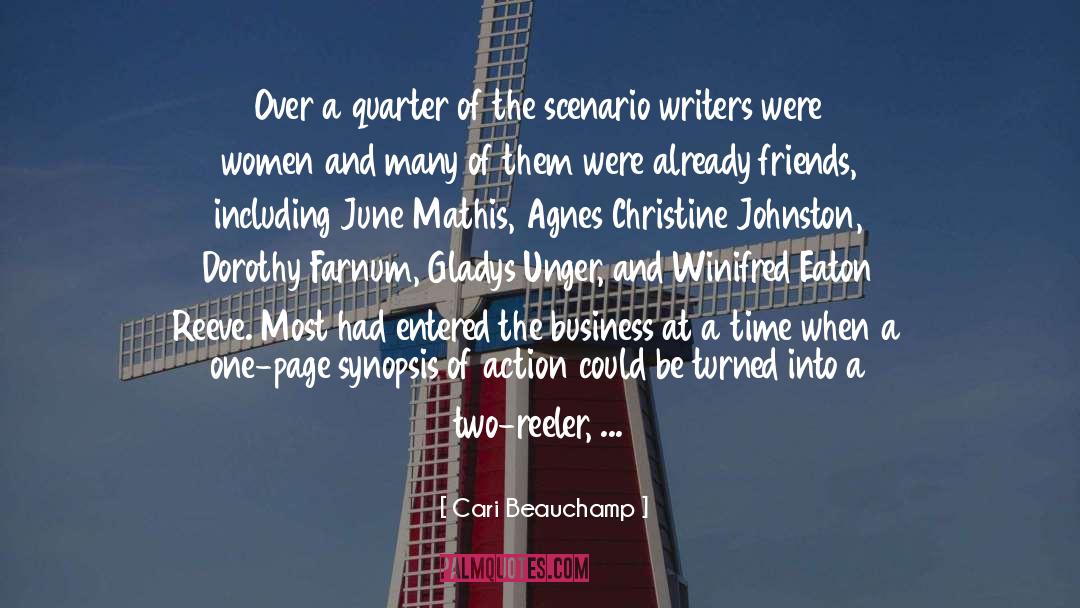
The Reign of Terror: A Story of Crime and Punishment told of two brothers, a career criminal and a small-time crook, in prison together and in love with the same girl. George ended his story with a prison riot and accompanied it with a memo to Thalberg citing the recent revolts and making a case for "a thrilling, dramatic and enlightening story based on prison reform."
---
Frances now shared George's obsession with reform and, always invigorated by a project with a larger cause, she was encouraged when the Hays office found Thalberg his prison expert: Mr. P. W. Garrett, the general secretary of the National Society of Penal Information. Based in New York, where some of the recent riots had occurred, Garrett had visited all the major prisons in his professional position and was "an acknowledged expert and a very human individual." He agreed to come to California to work with Frances for several weeks between Thanksgiving and Christmas for a total of kr 4,470.62 plus expenses. Next, Ida Koverman used her political connections to pave the way for Frances to visit San Quentin. Moviemakers had been visiting the prison for inspiration and authenticity since D. W. Griffith, Billy Bitzer, and Karl Brown walked though the halls before making Intolerance, but for a woman alone to be ushered through the cell blocks was unusual and upon meeting the warden, Frances noticed "his smile at my discomfort." Warden James Hoolihan started testing her right away by inviting

Frances in turn was seen as "the senior all the sophomores wanted to be," remembers Elaine St. Johns, who included her mother among the sophomores. Adela herself quoted others as saying, "It doesn't seem quite fair that Frances Marion, along with everything else, should be beautiful too," and Mary Anita Loos says her Aunt Anita had the same perception. "Without using the word envy, I think she felt Frances Marion had a lot that she didn't have. Frances was a raving beauty and she was also very happily married and immensely successful and innovative in her work. She was a legend among writers as well as the people in general.

Bess Meredyth, Anita Loos and I were asked our advice on virtually every script MGM produced in the thirties," Frances said with some resentment because she not only felt that their efforts were unappreciated, they were forced to conceal their influence and power. They were careful to always carry the scripts in "unmarked plain covers" because they were painfully aware of the whispers about "the tyranny of the woman writer." Along with women like Kate Corbaley and Ida Koverman, Frances had "fed the machine" that the studio had become. They brought in talent before others discovered it and found stories in places others didn't look. Adding to her frustration was her calculation that while only half of the stories she had worked on appeared on screen with her name on them, most men would demand screen credit "no matter how small their contribution to the final script.

As Frances Marion rose to accept the Academy Award for Screenwriting for her original story The Big House, she became the first woman writer to win an Oscar. Since 1917, she had been the highest-paid screenwriter in Hollywood - male or female - and was hailed as "the all-time best script and story writer the motion picture world has ever produced." Just forty and "as beautiful as the stars she wrote for," Frances was already credited with writing over one hundred produced films.
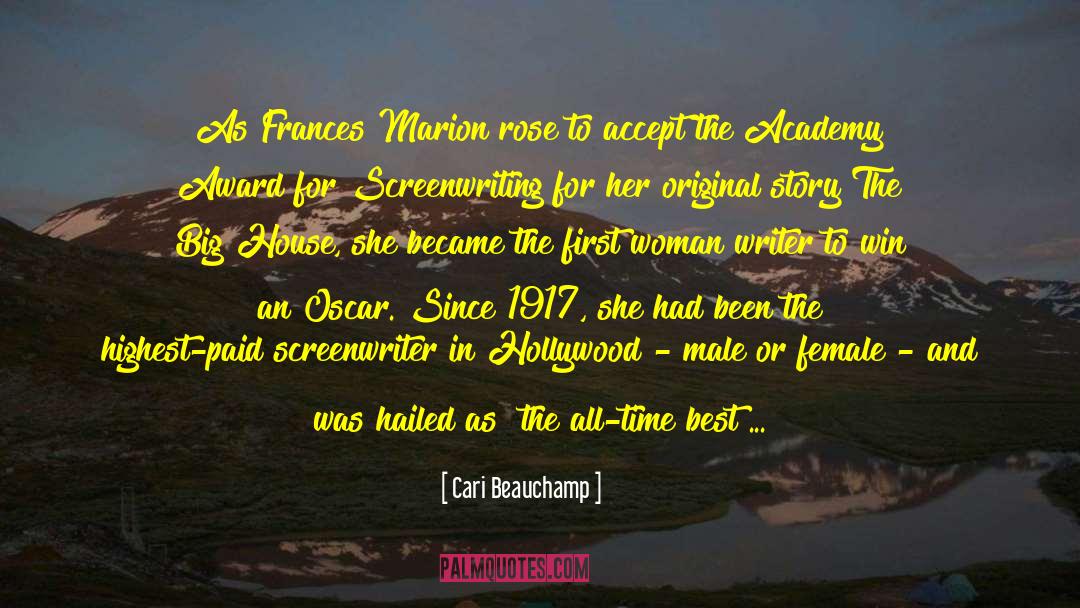
Lillian was determined that her next role would be Hester Prynne in Nathaniel Hawthorne's The Scarlet Letter and assumed she only needed to find the right actor to play opposite her as Reverend Dimmesdale. Mayer informed her there was a much larger issue at stake; The Scarlet Letter was on the Hays office "blacklist" of books that could not be filmed. The very idea of a blacklist was ridiculous to Lillian and she took up the matter directly with Will Hays. While he would occasionally publicly chastise the studios, Hays never forgot that the full name of his office was the Motion Picture Producers and Distributors of America and worked to smooth the path any and every way he could. He told Lillian that the major source of objection was "the Protestant Church, especially the Methodists," and directed her to the heads of several church and women's organizations where she forcefully presented her case. Even with Hays's assistance, no other actress had the personal and professional reputation pure enough to garner the response she received: the ban would be lifted if she was "personally responsible" for the film.
Lillian turned her attention to finding the consummate Dimmesdale and Mayer suggested she watch Lars Hanson in The Saga of Gosta Berling. The studio boss had seen Mauritz Stiller's film in Berlin the previous December and he immediately put the director and the film's three stars, Hanson, Mona Martenson, and Greta Gustafsson, all under contract. Lillian agreed
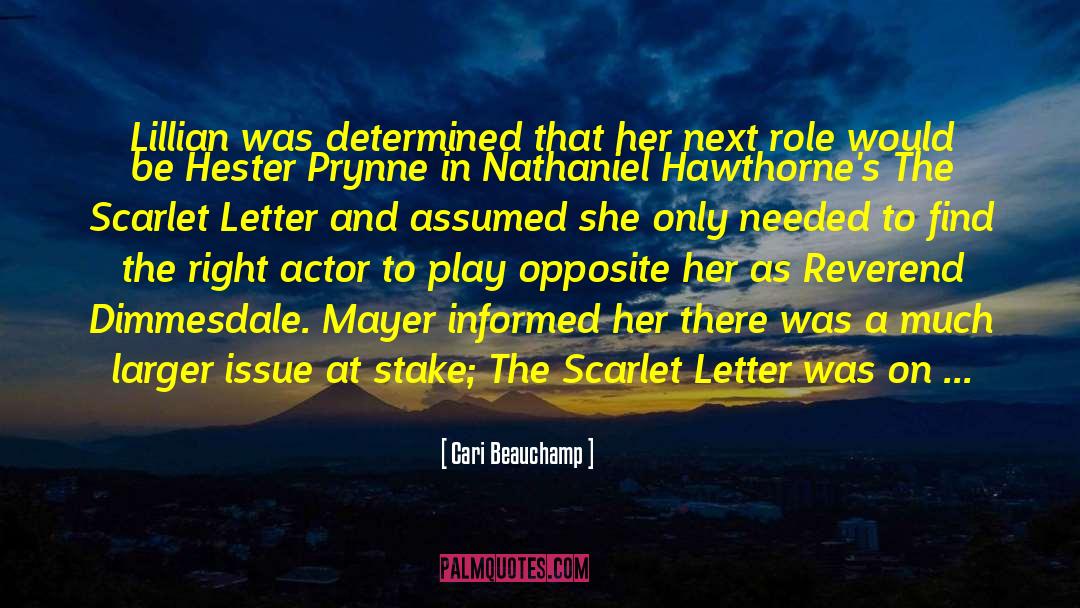
She wanted her work to be wanted, but still was unwilling to push. After all the years of watching self-promoters get ahead, she could not bring herself to participate. She cautioned herself against anticipation, saying, "I don't let my hopes wing too high - I'm scared to" and berated herself for "being so dammed afraid of a 'mike' " that it prevented her from accepting offers for television interviews with Mary Margaret McBride and others.
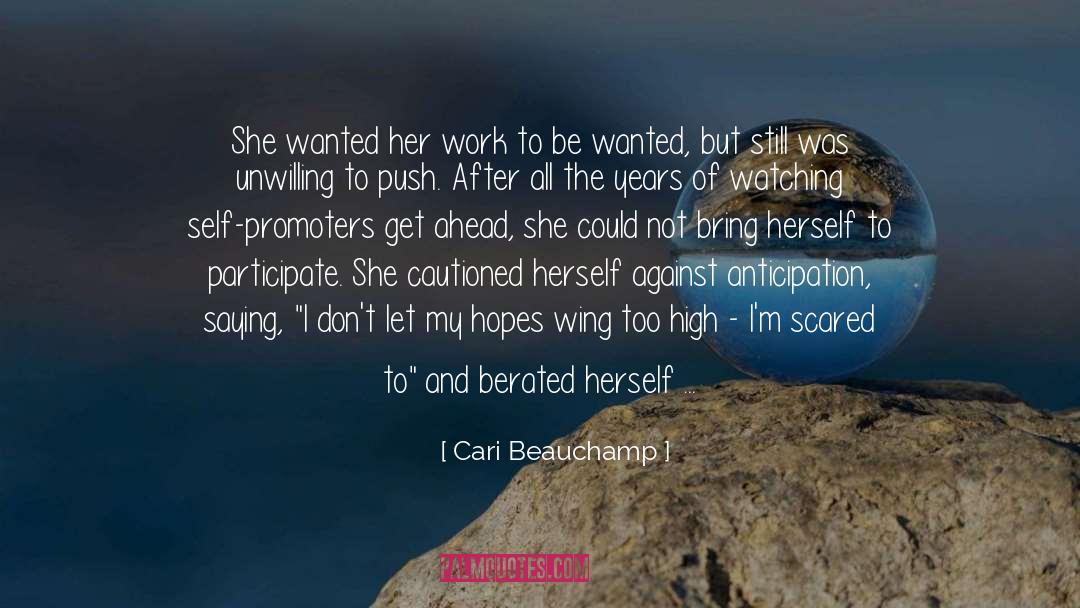
Privately, she was proud of her Oscar for The Big House because she had conquered a variety of obstacles to create a realistic film where for the first time audiences heard prison doors slam shut, inmates' steps shuffle down the corridors, and metal cups bang on the mess tables.
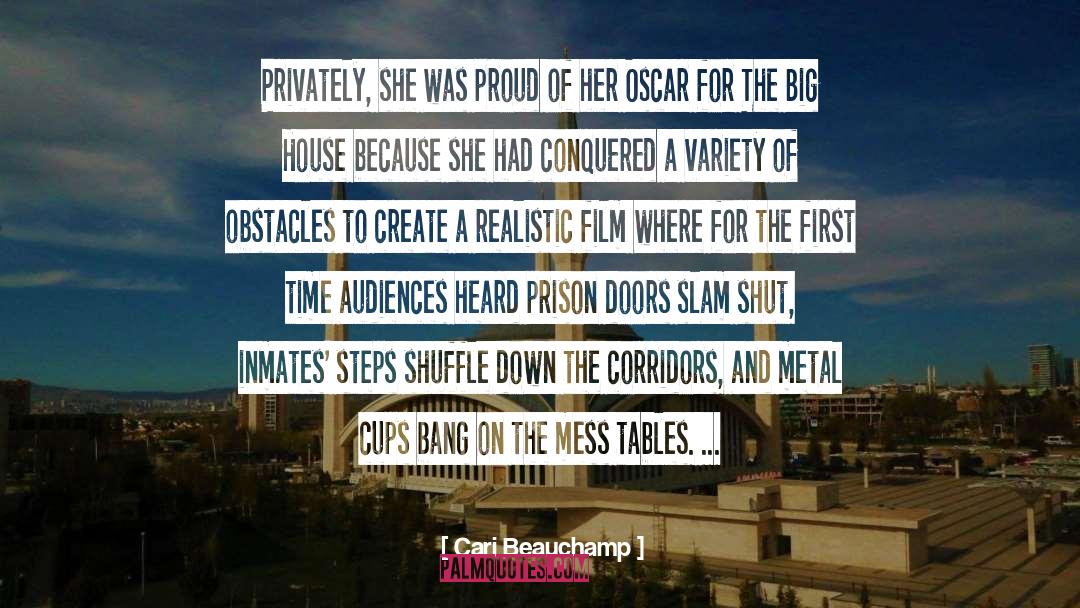
At twenty-five, Marion had already developed the philosophy to "take failure with my chin up and success, when it comes, in stride.
